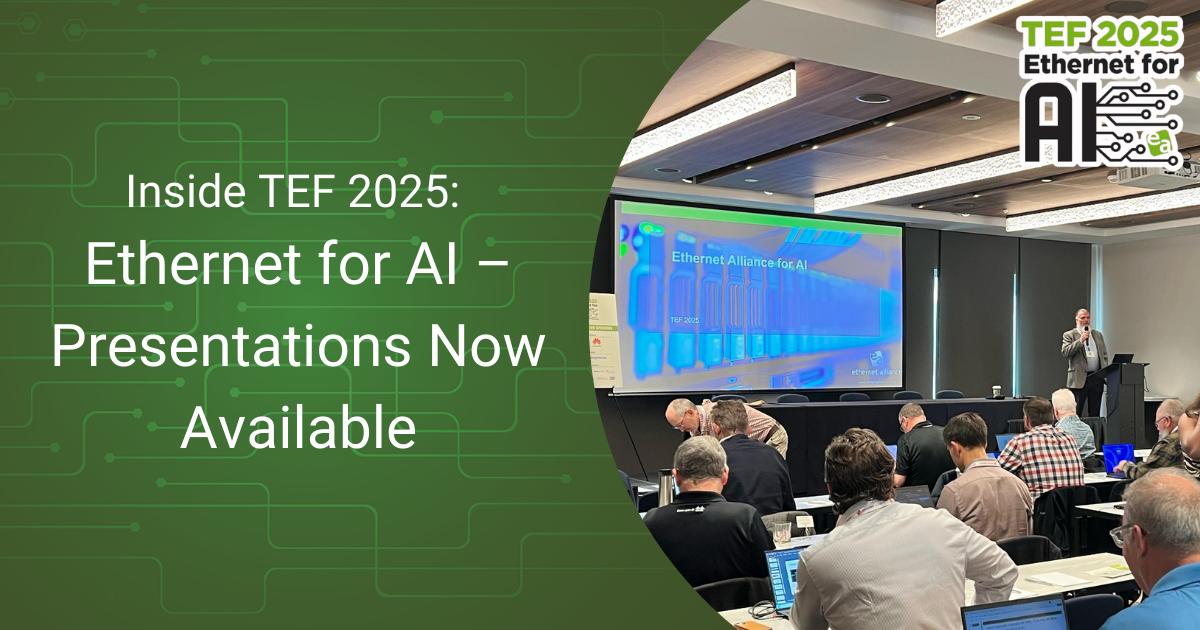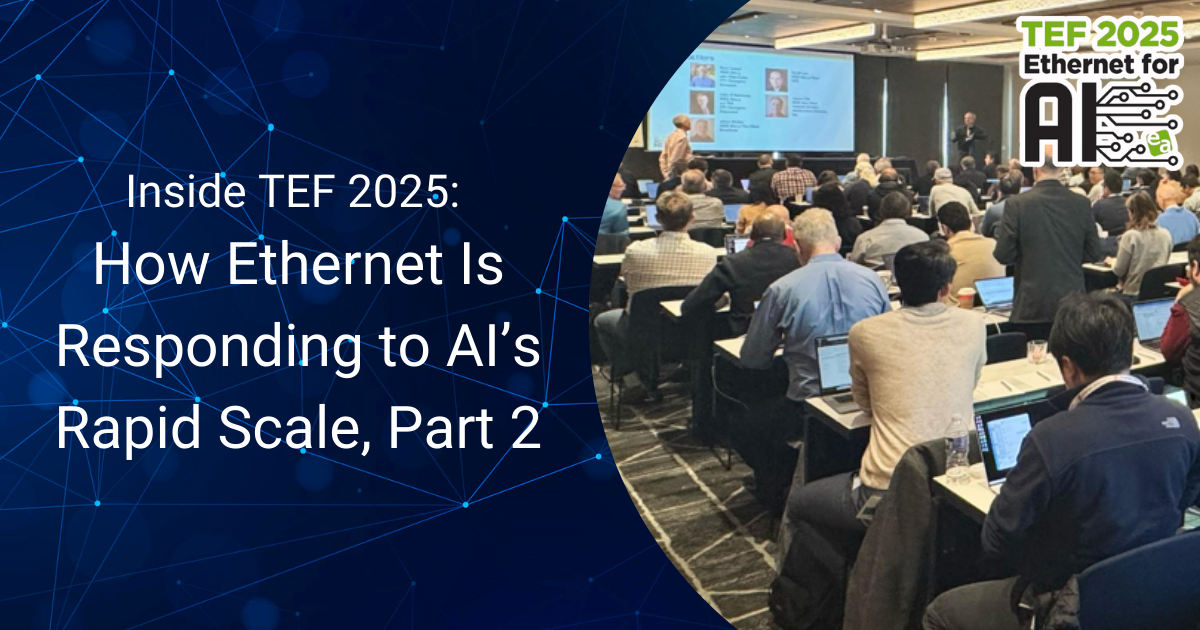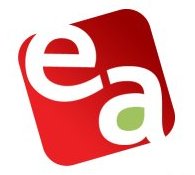Ethernet Alliance – Commitment to Interoperability
By David J. Rodgers, Events & Conferences Chair, Ethernet Alliance
As the “industry voice of Ethernet”, the Ethernet Alliance’s long-standing mission has been to support activities from Ethernet technology incubation to interoperability demonstrations, and education.
Over the years of my involvement with the Ethernet Alliance, I have often posited the importance of interoperability events – both testing events like plugfests and public demonstrations – to ensure the success and adoption of Ethernet technologies.
The Power of Plugfests
Alexander Graham Bell once said, “Great discoveries and improvements invariably involve the cooperation of many minds.” There’s no better living proof of this than the Ethernet Alliance plugfest series.
These events bring together an array of products from across the Ethernet ecosystem to flesh out new designs, validate conformance to relevant specifications – most often the latest IEEE 802.3 variant(s) – and pursue engineering-level interoperability. Held privately and under NDA with key engineering assets from the myriad of participating companies, plugfests provide a secure, non-competitive, collaborative environment, thereby multiplying their effectiveness for all participants.
Plugfests offer the Ethernet community an invaluable opportunity to evaluate new technologies, whether derived from IEEE specification or through developments brought about in Multi Source Agreement (MSA) work groups. Most recently, emerging Linear Pluggable Optics (LPOs) and Active Copper Cables (ACCs) prototypes were tested and validated under the auspices of the plugfest format which allowed for near-immediate feedback from test participants as to viability and efficacy of these new interconnect schemes.
Proving technical viability in the engineering lab is indispensable. The “incubator” model is not new to Ethernet, yet due to the complexity of standards, and variations in interpretation and implementation, it is exceptionally necessary. Gone are the days whereby a single company was solely responsible for all aspects of the network, from switches and servers to cables and interconnects.
The success and camaraderie arising from plugfests transitions nicely into the high-profile Ethernet Alliance public interoperability demonstrations, most notably our presence at the annual Optical Fiber Communication Conference and Exposition (OFC). Always a popular destination among attendees, these public interoperability demos give both members and visitors a chance to see state-of-the-art products operating in a real-world setting. While they typically feature the latest technologies and speeds, something that’s often overlooked is the integration with legacy speed products, in effect more closely mirroring how a customer might add new technology to their existing network or enterprise.
Ethernet’s legendary interoperability will be on display once again in this year’s Ethernet Alliance OFC demonstration. However, this time around it will be accompanied by a technology showcase highlighting the latest LPO interconnects. Embodying the Ethernet Alliance’s role as the “Industry Voice of Ethernet” and a leading incubator for new Ethernet technologies, multiple Ethernet Alliance members are uniting for this live LPO technology display.
Interoperability – Beyond the Buzzword
Interoperability has become a buzzword of sorts, but it’s so much deeper than that. Though the success of public interoperability demonstrations is often measured by the number of participating members or the number of booth visitors, a far more meaningful metric is the number of attendees brought to the Ethernet Alliance booth to view vendor products in the demonstration. The adage “a picture is worth a thousand words” springs to mind as potential customers that come to observe the live demos running real-world traffic.
The success of any emerging technology, Ethernet or otherwise, is the ability to meet the expectations of the consumer. This includes the capacity to function and interoperate in an environment with similar products. For example, the USB type C phone charger just works when you plug it in to charge your phone, just as the cable box does when the HDMI cable is attached to the television. This plug-and-play operation is only realized through interoperability and validation testing that the average consumer knows little about.
The goal for all interoperability testing and product demonstrations is evolving the products and/or services so they “just work”. The Ethernet Alliance commitment to interoperability is unparalleled and serves as the template for many other technologies as they pursue comparable validation and functional operation.
Putting Theory Into Practice
The Ethernet Alliance’s stated mission encompasses supporting activities from Ethernet technology incubation to interoperability demonstrations and education. However, if I had to pick just one thing that defines the organization, I would say it’s the steadfast commitment to interoperability.
This commitment will be on display in two upcoming interoperability events in March. At OFC 2024, the Ethernet Alliance will have a multi-vendor interoperability demo and in March 2024, it is hosting a Single Pair Ethernet (SPE) Plugfest.
Learn more about these and other upcoming events by visiting the Events page now.





